On May 20, International Criminal Court (ICC) Chief Prosecutor Karim Khan applied for arrest warrants for five atrocity crimes suspects in the Israel-Hamas war. They include Israeli Prime Minister Benjamin Netanyahu and Minister of Defense Yoav Gallant, and Hamas’s leader in Gaza, Yahya Sinwar. Israel reportedly killed two other Hamas leaders whom Khan had charged—Mohammed Deif, in an airstrike in Gaza, and Ismail Haniyeh, in a bombing in Iran, both in July. Hamas and Israel have denounced the request for warrants.
Khan’s application is based on evidence collected since the October 7 terrorist attacks—when Hamas massacred about 1,200 Israelis and took 250 others hostage—and the start of Israel’s retaliatory military action in Gaza. More than 40,000 Palestinians have been killed since then, with hundreds of thousands of others displaced and facing starvation.
The investigation spans a decade, beginning in 2015 when the State of Palestine accepted the ICC’s jurisdiction over atrocity crimes (e.g., war crimes and crimes against humanity) in the Gaza Strip and the West Bank (including East Jerusalem) from June 13, 2014, onward. The State of Palestine, officially represented by the Palestinian Liberation Organization (PLO), has been a “nonmember observer state” at the United Nations since 2012. This designation allows Palestine to join treaties like the ICC’s Rome Statute. There are two rival governments in Palestine: the Palestinian Authority (PA)—which speaks for the PLO, governs the West Bank, and initiated the ICC probe—and Hamas in Gaza. Hamas was briefly a part of the PA, after its 2006 general election win in Gaza and the West Bank, but splintered off when Fatah, a rival faction, refused to recognize the election results.
Because Hamas militants are ICC member nationals, they are liable for prosecution for atrocities committed in either Israel or Palestine; Israeli personnel, as nonmember nationals, are only liable for atrocities committed in Palestine.
Whether or not they ultimately lead to arrests, warrants matter, and Hamas’s and Israel’s allies shouldn’t attack the ICC for its findings. Doing so undermines international law and jeopardizes international justice for Israeli and Palestinian victims of atrocity crimes.
What are the allegations?
Khan’s filing asserts that Sinwar and Deif are criminally responsible for atrocities including murder, hostage taking, torture, and sexual violence since at least October 7, while Netanyahu and Gallant are criminally responsible for civilian targeting, wilful killing, and using the starvation of civilians as a weapon of war, among other crimes in Gaza since at least October 8. The “at least” language is important: Khan is focused on the current war, but he is also examining a broader range of abuses (potentially including genocide by Hamas and/or Israel) over a longer time frame. The U.S. Department of Justice has separately filed criminal charges against Hamas leaders.
Are the judges taking a long time?
There is no set time for ICC judges to deliberate, but they are taking longer in this case than they did with the last high-profile arrest warrants. In 2023, the judges took just three weeks to grant warrants for Russian President Vladimir Putin and one of his deputies for the unlawful deportation and transfer of Ukrainian children to Russia.
The judges may be taking more time for several reasons, including the number of perpetrators and violations, and the many amicus curiae observations (or briefs filed by outside advocates) that states and other groups have submitted for consideration. The judges also may want to decide on all the warrants before making an announcement. Consider this hypothetical: if the judges issue warrants for Hamas leaders first and do so for Israeli leaders at a later date, they could face two types of backlash—first, for appearing to be biased against Palestinians and, second, for seeming to capitulate to pressure to include Israelis. There will be backlash no matter what, but backlash on one front seems better than backlash on two fronts.
Do arrest warrants matter?
Judges can take months to issue warrants but they almost always accept the prosecutor’s requests (at least those we know about—some requests are made under seal). Warrants don’t always result in arrests, to be sure—but they still matter. They hold symbolic value, marking the accused as international pariahs and acknowledging victims’ suffering. Just the possibility of warrants makes it harder for allies to continue lending military and diplomatic aid. Foreign governments, like the U.K., have in recent weeks withdrawn aid they think Israel could use to violate international law.
Warrants also mean ICC members—124 countries—have a legal obligation to arrest suspects who enter their territory (per Article 59 of the Rome Statute) and to cooperate with court proceedings (per Article 86). But countries don’t always comply.
For example, South Africa failed to arrest former Sudanese President Omar al-Bashir during a 2015 African Union summit in Johannesburg. But in 2023, President Cyril Ramaphosa agreed to not have Putin attend a BRICS summit in Johannesburg. Putin had threatened to declare war if Ramaphosa’s government tried to arrest him, but ultimately, the two leaders avoided a standoff.
Putin has traveled little outside Russia since the arrest warrant and only to ICC nonmembers like China, Kyrgyzstan, and Kazakhstan—until recently. ICC member Mongolia has drawn global criticism, including from the United States, for welcoming Putin to Ulaanbaatar on September 3.
What happens after arrest warrants are issued?
If warrants are issued, Hamas and Israeli leaders could dodge the court, like 20 other current defendants. They could also be arrested if they visit an ICC member country. Alternatively, they could surrender themselves, as did Uganda’s Dominic Ongwen (now in prison for atrocities he committed as a brigade commander in the Lord’s Resistance Army) and the Democratic Republic of the Congo’s Bosco Ntaganda (now in prison for atrocities he committed as a leader of the Patriotic Forces for the Liberation of Congo).
At this point, remaining at large (scenario one) seems most likely. To be arrested by an ICC member country (scenario two), Israeli and Hamas leaders would first have to travel there. Only if the suspects were likely to face worse punishment at home would they consider voluntarily surrendering (scenario three).
The blowback
Israeli officials, U.S. President Joe Biden, and others have challenged what they see as a false moral equivalence in the charges against both Hamas and Israeli leaders. But the prosecutor’s job isn’t to make moral judgments; it’s to apply the law. This isn’t to say that the prosecutor isn’t political or doesn’t act strategically. For instance, the prosecutor’s office has in the past been accused of targeting offenders in African countries, ostensibly because the prosecutions seemed easier to conduct. (These claims are contested, however, even in Africa.) What matters most is that, within each country investigation, the prosecutor is even-handed.
Hamas enacted unspeakable violence on October 7 and militants should be held criminally accountable. But this doesn’t give Israel a blank check to commit atrocities to secure itself and bring the hostages home. Israeli personnel should also be held accountable.
Some commentators assert that warrants for Netanyahu and Gallant will make peace harder to achieve but others challenge the “peace versus justice” assumption underlying such claims. The ICC can make negotiations more complicated, but it doesn’t necessarily make negotiations less productive. Other commentators have proposed that the arrest warrant request could help end the war and encourage Israelis to oust Netanyahu’s government, which is very unpopular.
However, the Israeli government isn’t going down without a fight and has threatened to punish Palestinians if the ICC issues warrants. The United States has similarly threatened to withhold aid to Palestinians. But as international law expert Mark Kersten argues,
“There is no moral, legal or political justification for Israel’s allies punishing civilians for an investigation by the only credible, impartial and independent court investigating atrocities against Palestinian and Israeli victims of atrocity crimes.”
During his announcement, Khan made an oblique reference to attempted interference in his investigation and threatened legal action under Article 70 of the Rome Statute, which provides for fines and up to five years imprisonment for individuals who obstruct justice.
A week later, The Guardian reported that Israel has “deployed its intelligence agencies to surveil, hack, pressure, smear and allegedly threaten senior ICC staff in an effort to derail the court’s inquiries”—likely the actions Khan was referencing, though an Israeli spokesperson denied the allegations.
This wouldn’t be the first—or likely the last—time the ICC has faced intimidation. During the Trump administration, the United States levied sanctions against court officials, and it could do so again. Some lawmakers have warned, “Target Israel and we will target you.” But others have spoken out against such threats, including the White House.
Still, Biden and Secretary of State Antony Blinken have called Khan’s actions “outrageous” and “shameful,” reinforcing the idea that the system is unfair. Israeli officials have gone a step further, accusing the ICC of antisemitic bias, echoing prior allegations of an anti-African bias.
These attacks are intended to undermine the ICC’s credibility and effectiveness—and they shouldn’t continue or be allowed to succeed. Opponents can instead offer legal arguments and evidence to challenge the court’s determinations. States that value the rule of law should make their case using the law—not ad hominem attacks, intimidation, or obstruction.
The Brookings Institution is committed to quality, independence, and impact.
We are supported by a diverse array of funders. In line with our values and policies, each Brookings publication represents the sole views of its author(s).

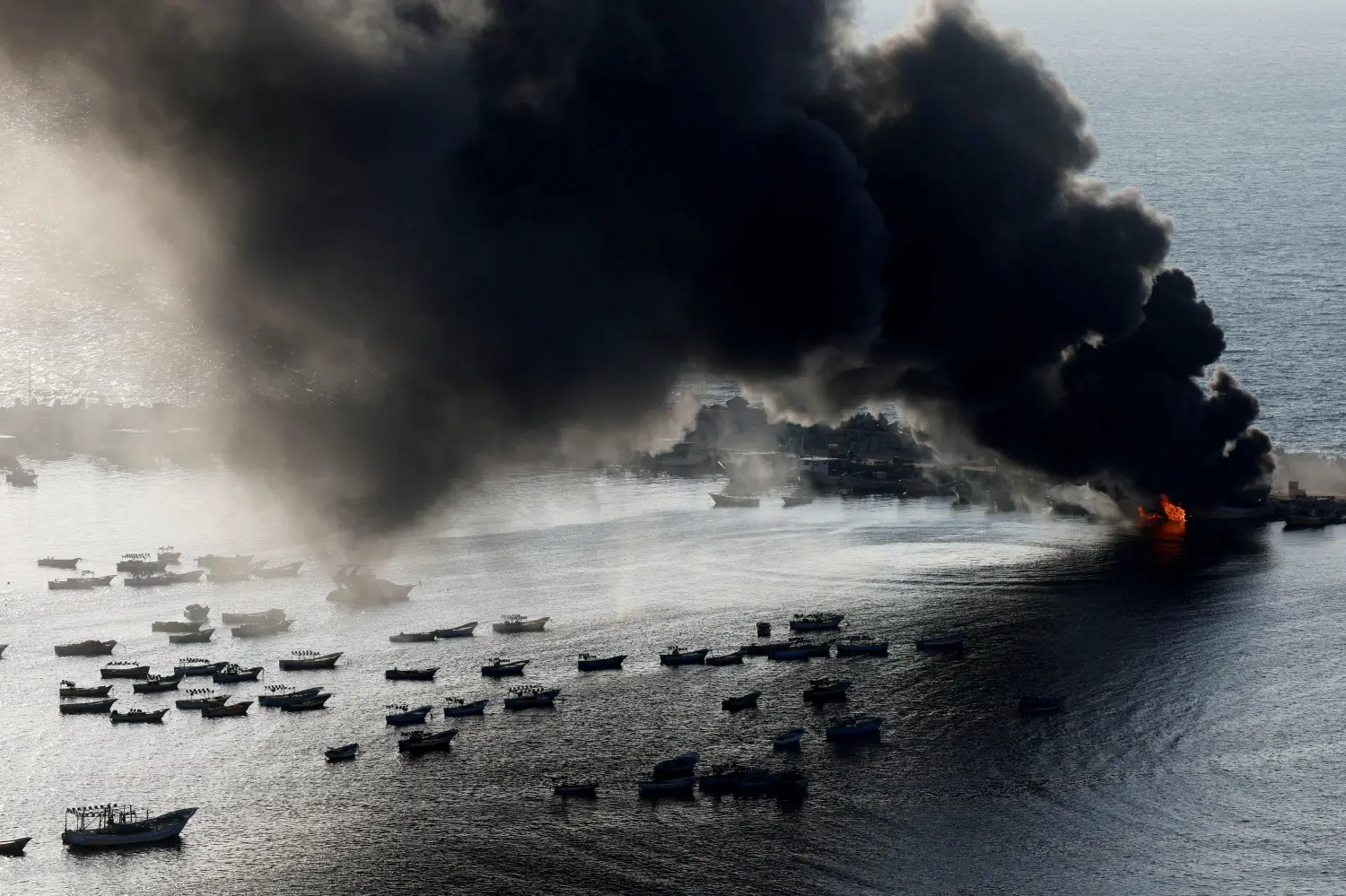

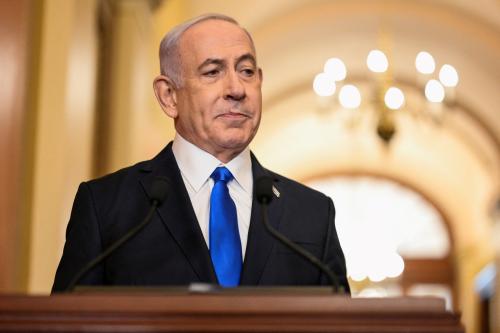
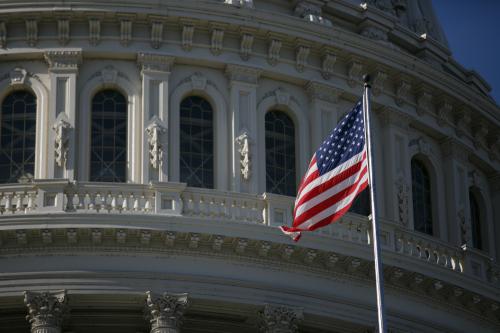

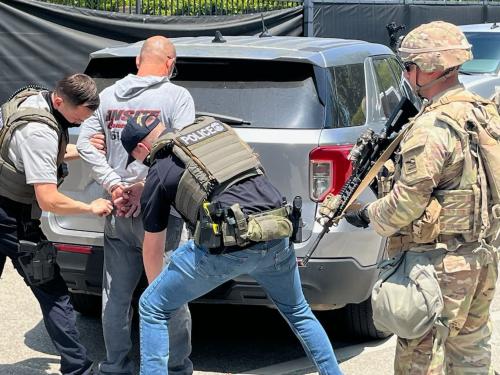
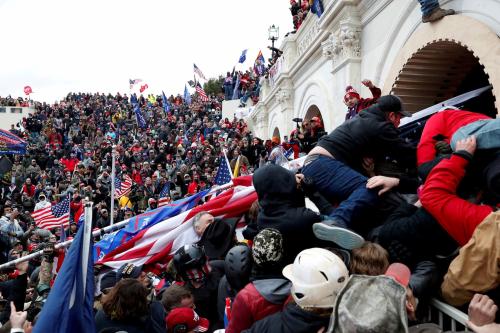

Commentary
Will the ICC issue arrest warrants for Netanyahu and Sinwar?
Warrants don’t always result in arrests but they still matter.
September 9, 2024